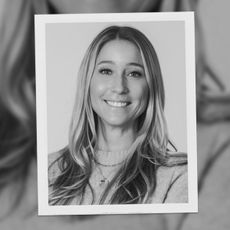Dry Needling vs. Acupuncture: What's the Difference, and Which Is Right for You?
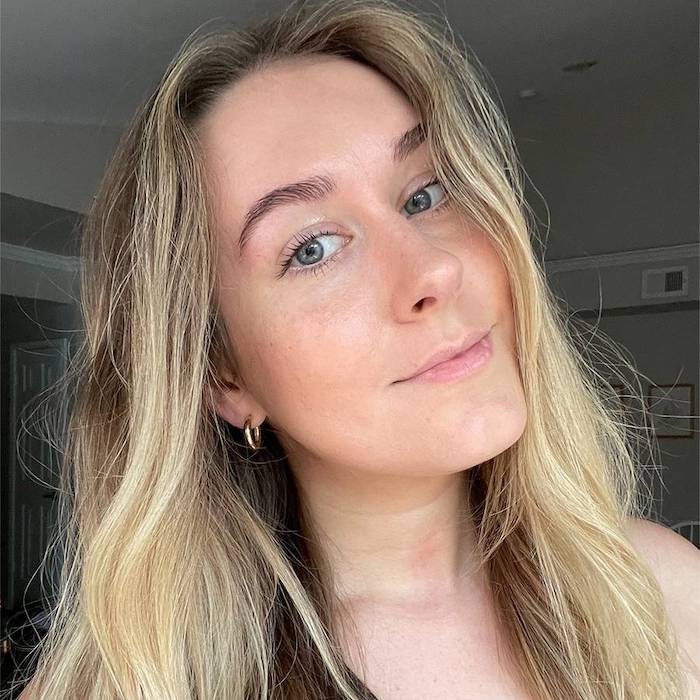
The definition of wellness transforms and shifts over time, so much so that it can be a hard business to keep up with. Take it from me. I've been feeling that way ever since I first started to dabble in wellness culture. I was just starting to incorporate more whole grains into my diet when food blogs everywhere proclaimed the benefits of going gluten-free.
Once I finally grasped the meaning of gluten-free (remember, this was long before it was such a common buzzword), the world moved on to the Paleo diet. Then it was the Mediterranean diet and then it was veganism. Add keywords like anti-inflammatory and microbiome and I'm left with a very unclear idea of what constitutes being "well."
Since then I've learned that it's different for everybody. What works for one person fails miserably for the next, and it's all about finding the lifestyle that suits you best and makes you feel great. Life's about balance and being well-rounded, right? I know that to be true as far as diet goes, but I'm still on a learning curve when it comes to certain wellness practices.
There are sensory-deprivation tanks, salt spas, infrared saunas, and more. Then there are certain wellness practices that appear to be kind of the exact same thing—like acupuncture and dry needling. I mean, is there a difference between them? I reached out to experts to explain. As it turns out, there is a difference between acupuncture and dry needling, and it's bigger than we thought.
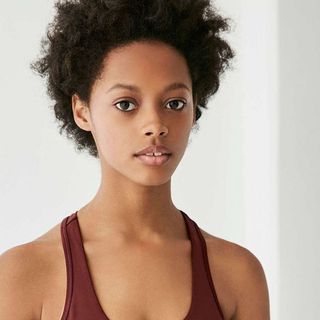
Acupuncture
Let's start with acupuncture, which is something people seem to be more familiar with. It's an ancient practice that people swear by for treating a number of ailments—whether that's poor digestion, fatigue, anxiety, depression, and more. In fact, the purported benefits are so diverse and long-winded it can be hard to pin down.
According to Gabrielle Francis, a naturopathic doctor, chiropractor, acupuncturist, and licensed massage therapist, "the benefits of acupuncture in a hectic lifestyle are endless. I've used the technique to treat clients recovering from addiction, reducing cravings, lessening withdrawal symptoms, combating anxiety and depression, bolstering creativity, improving sleep, relieving pain, eliminating constipation, alleviating headaches, stopping smoking, and beating jet lag, fatigue, and insomnia."
In layman's terms, it's a treatment that targets physical, spiritual, and mental ailments. "Acupuncture falls within traditional Chinese medicine, a health system that's several thousand years old and also includes therapies such as Chinese herbal prescription, cupping, moxibustion, and tui na massage."
During a session, an acupuncturist places small and sterile needles on specific points of the body. These are called acupuncture points, and they're essentially "little vortices of energy," says Francis. They're found on the meridians of the body. Meridians are the specific energy channels that crisscross the body.
In these meridians, qi flows. "Qi is the vital life-force energy that flows through these meridians," Francis says. "Each meridian is associated with a particular organ system. The points all have particular effects on balancing your body and may relate to specific physical, emotional, or spiritual imbalances." That's why acupuncture is used to treat so many different things.
Depending on the points that are targeted, specific issues can be alleviated or resolved. "In general, acupuncture is beneficial for almost any disharmony of the body and mind because it’s a complete system of medicine of its own. The points chosen are the best ones determined to recalibrate and rebalance the energy of the particular person at that time," Francis says.
Dry Needling
Dry needling is a process that also relies on small, painless needles being placed on certain areas of the body, but the similarities end there. Instead of traditional Chinese philosophy backing it up, it has a more modern origin. It hasn't been around for long—think decades as opposed to centuries.
It also has nothing to do with energy. Instead, a practitioner places needles on specific areas of the body where the client is experiencing pain. This targets the neuromusculoskeletal system. It's based on trigger point therapy—a system of pain relief that involves targeting and manipulating the area in question, in order to relieve negative sensations. That's why it's a popular physical therapy treatment for athletes.
Think of it this way. An athlete's shoulder has been injured, and the muscle is painfully knotted or contracted. A practitioner will insert a needle into this point in order to get the muscle to relax and speed up healing. That's the theory behind dry needling in a nutshell.
Mona Dan, licensed acupuncturist, herbalist, and owner of Vie Healing, warns that dry needling and acupuncture are different on many levels, which is why you should be careful and do your research before booking an appointment. "For an acupuncturist to be able to initially start needling a patient, they have undergone nearly two years of graduate school and they've taken a mid-curriculum exam, proving their knowledge of both the philosophy of the medicine and the pathophysiology of the body," she says.
"Technique is also taught within those two years and proper treatment diagnosis and planning as well," she continues. "When physical therapists or chiropractors dry needle, they take a weekend course using the same needles as acupuncturists. The true technique and medicine of acupuncture is not applied through dry needling because dry needling is just the process of inserting a needle in an area of pain. As acupuncturists, we don't rely on pain areas for effective treatment but the response of the entire nervous system to get blood moving and the nervous system stimulated."
While she concedes that research has shown its efficacy, she wouldn't ever choose to undergo dry needling herself. "Dry needling is a basic Western practice compared to a deep Eastern philosophy." On top of that, "dry needling only targets pain, whereas acupuncture treats a wide range of ailments including pain."
The Consensus
Both experts laud the benefits of acupuncture over dry needling. Though these practices are similar in some respects, the philosophy that they're based on is very different. No matter which one you think is best for undergoing yourself, always do your research and consult a licensed expert. That being said, if you're a loyal devotee of acupuncture or dry needling, Dan and Francis have some post-treatment produce suggestions for you.
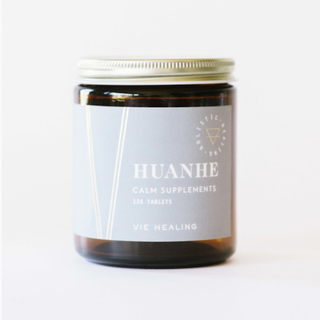
This supplement includes a blend of five different soothing herbs to promote deeper relaxation and better sleep. "Adaptogen-filled supplements like the ones we carry at Vie Healing are very helpful, as they enhance the relaxation of the nervous system and allow the relaxation time to extend between sessions," Dan says.
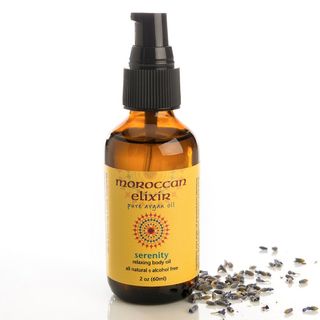
"I like to use Moroccan Elixir's Serenity after an acupuncture session," Francis says. "Serenity is a body oil made of 100% pure argan oil, essential oils of sandalwood marjoram, ylang-ylang, jasmine, and lavender. Massaging it into the skin after a session promotes relaxation." As a bonus, this product is also all-natural.
Disclaimer
This article is provided for informational purposes only and is not intended to be used in the place of advice of your physician or other medical professionals. You should always consult with your doctor or healthcare provider first with any health-related questions.

Kaitlyn McLintock is an Associate Beauty Editor at Who What Wear. Although she covers a wide range of topics across a variety of categories, she specializes in celebrity interviews and skincare and wellness content. Having lived in Los Angeles and Austin, Texas, she recently relocated back to her home state of Michigan where she works remotely. Prior to Who What Wear, she freelanced for a variety of industry-leading digital publications, including InStyle, The Zoe Report, Bustle, Hello Giggles, and Coveteur. Before that, she held a long-term internship and subsequent contributor position at Byrdie. When she's not writing, researching, or testing the latest and greatest beauty products, she's working her way through an ever-growing book collection, swimming in the Great Lakes, or spending time with family.

